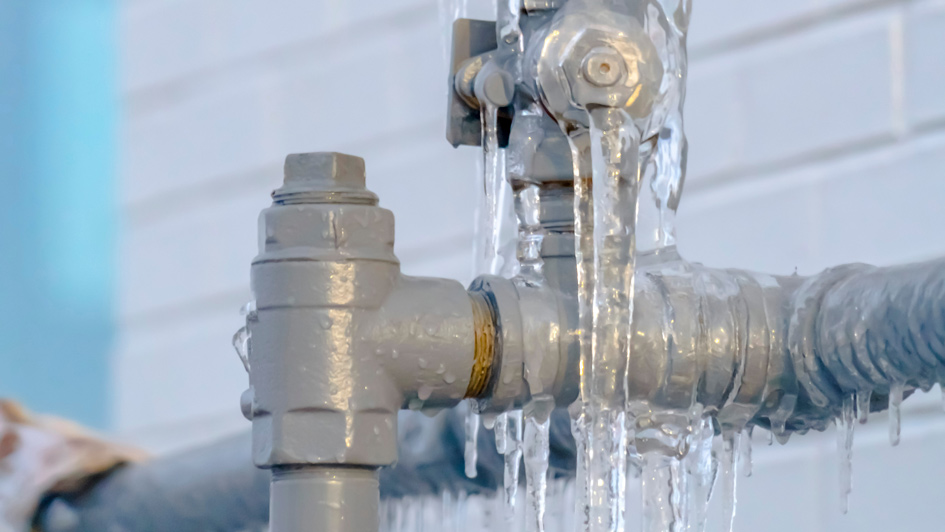
Lots of snow and winter weather brings fun activities like sledding down the neighborhood hill or snowball fights in the neighbor's yard. However, winter weather can be tough on your home. Extremely cold conditions can encourage the water lines in your house's plumbing system to freeze and burst, which could result in significant water damage and enduring negative effects.
When your pipes are frozen, you may want to hire a plumber in Manassas to handle the problem. That being said, there’s a lot you can try to stop this from happening – and even minor prevention can go a long way.
What Pipes Are at Risk of Freezing
The pipes at the greatest risk of freezing are uncovered water lines. Prevalent locations for uncovered pipes are inside attic crawlspaces, near exterior walls, in the basement or even running underneath a modular home. Water lines that are not correctly insulated are at the highest risk.
How to Keep Pipes from Freezing in Your Home
Sufficiently insulating uncovered water lines is a good first step to keeping your pipes safe. You’ll likely have access to lots of these materials from your local plumbing company, and may also already have some inside your home.
Be careful not to wrap up other flammable insulation materials where they can be caught on fire. If you don’t feel comfortable insulating the pipes yourself, get in touch with your local plumbing services professional in Manassas to do the job.
If you do decide to insulate the pipes on your own, popular insulation materials for pipes include:
- Wraps or roll insulation: Many plumbers, hardware stores and large retailers provide insulation – commonly fiberglass, foam wraps or pipe sleeves – that you can use to cover or fit around your pipes. They are offered in numerous lengths and sizes to fit the needs of your home.
- Newspaper: In a pinch, newspaper can be used as an insulator. If the weather is going to get cold and you aren’t able to buy insulation before then, try wrapping uninsulated pipes in this.
- Towels or rags: If you don't have the chance to buy insulation and don’t have any newspaper handy, wrapping particularly vulnerable pipes with towels or clean rags as a final effort could be just enough to keep the cold air away from the pipes.
Another preventative step you can attempt to stop pipes from becoming frozen is to seal any cracks that may permit cold air inside your home. Pay close attention to window frames, which can draw in surprisingly powerful drafts. This not only will help to prevent your pipes from freezing, but it will have the extra benefit of making your home more energy efficient.
Five More Ways to Keep Your Pipes from Freezing:
- Open the cabinet doors. Opening the cabinet doors under the sinks and other rooms of your home with pipes will permit more warm air from the rest of the room to get to the pipes.
- Letting water drip. Keeping a flow of water by letting your faucets trickle even a small amount can help avoid frozen pipes.
- Open interior doors. By opening doors between rooms or hallways, your home can be heated more consistently. This is particularly important if you have a room that tends to be colder or hotter than the remainder of your home.
- Close the garage door. The exception to the open doors tip is the garage door, which you should keep down – namely if your water lines run through the garage.
- Keep the heat flowing. Experts encourage setting the thermostat at a persistent temperature and leaving it there, rather than allowing it to get colder at night. Set it no cooler than 55 degrees.
How to Stop Pipes from Freezing in a Vacant Home
When you’re inside a house, it’s not difficult to recognize when something breaks down. But what additional steps can you try to keep pipes from freezing in a vacant home or vacation home when the consequences from a frozen pipe can remain unnoticed for some time?
As with the main residence, placing extra insulation around any exposed water lines, opening interior doors in the home and winterizing the vacant home are the basic steps to try at first.
Other Steps to Prevent Pipes from Freezing in an Unused Home:
- Leave the heat on. Even though you aren’t going to be there, it’s best to keep the heat on – even if you turn the thermostat down cooler than you would if you were there. As with a primary home, experts recommend keeping the temperature at no cooler than 55 degrees.
- Shut water off and drain the lines. If you’re going to be out of the house for a long time or are winterizing a seasonal cabin or cottage, shutting the water off to the house and draining the water out of the water lines is one way to keep pipes from freezing and breaking. Don’t forget to drain the water out of all appliances, such as the hot water heater, or the toilets. See to it that you clear out all the water from the plumbing. If you are not sure of how to drain the water from the pipes, or don’t feel secure doing it on your own, a plumber in Manassas will be delighted to help.






